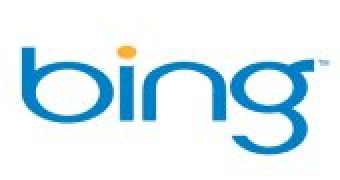Microsoft is joining companies such as Google, Facebook, Yahoo, Akamai and Limelight Networks for a test drive of Internet Protocol version 6 in mid-2011, the company announced.
Specifically, the software giant plans to enable worldwide IPv6 connectivity to Bing.com on June 8, just as additional companies that are participating in the “World IPv6 Day” initiative.
The one-day test of IPv6 connectivity across major web properties is designed as a part of the imminent transition away from IPv4, as the address space of the current Internet communication protocol has been all but exhausted due to the explosion of the volume of computers and devices that connect to the web.
“Microsoft has worked as a member of Internet Society (ISOC) – and more generally the Internet community – to invest in and ensure that there is a seamless transition from IPv4 to IPv6,” revealed Kevin Boske- Program Manager, Bing.
“It is especially important for Microsoft’s online services like Bing to be prepared. For this reason, Bing is joining other major websites in “World IPv6 Day” on June 8, 2011 as part of the Internet Society’s effort to validate the readiness of IPv6 as new foundation of the Internet.”
While IPv4 has been at the core of Internet communications for the past 20 years, the depletion of its four billion IPv4 addresses requires the world to transition to its successor, IPv6.
In terms of the number of addresses available alone, IPv6 is capable of offering in excess of 300 trillion trillion trillion (2128).
“Consumers with IPv6 Internet capabilities will automatically access this new method of connectivity. This necessitates both a device that supports IPv6 (like a Windows 7 PC), and support from your Internet provider,” Boske added.
“IPv4 traffic will continue to connect to Bing without any change. In fact, most Bing users won’t even notice that this transition is occurring.”
Customers don’t really have to do anything in preparation for “World IPv6 Day” or for the transition to IPv6.
Fact is that if they’re running products such as Windows 7 for example, they’re all ready to embrace IPv6 without experiencing any issues.
Also, it’s important to note that IPv4 is not going anywhere, at least for the time being, even if IANA, delivered the final allocation of IPv4 addresses. Certainly, the Internet as we know it isn’t coming to an end, as some reports have grossly exaggerated.
“Microsoft and other major technology companies have been working behind the scenes for years to outline a clear path to the next generation Internet Protocol, IPv6. Although a complete migration will take years, we are hopeful that the vast majority of people will never notice the transition,” Boske said.

 14 DAY TRIAL //
14 DAY TRIAL //